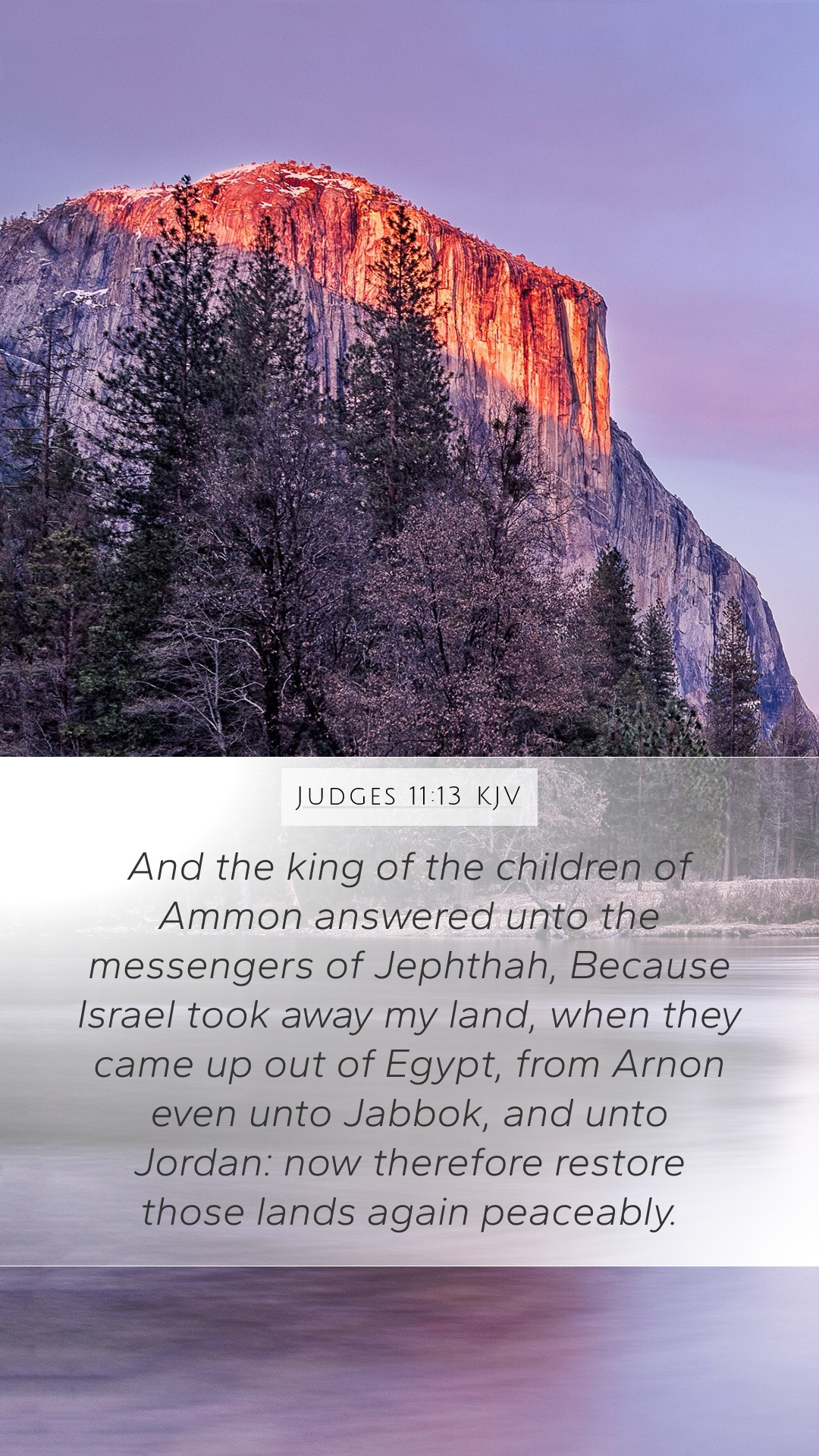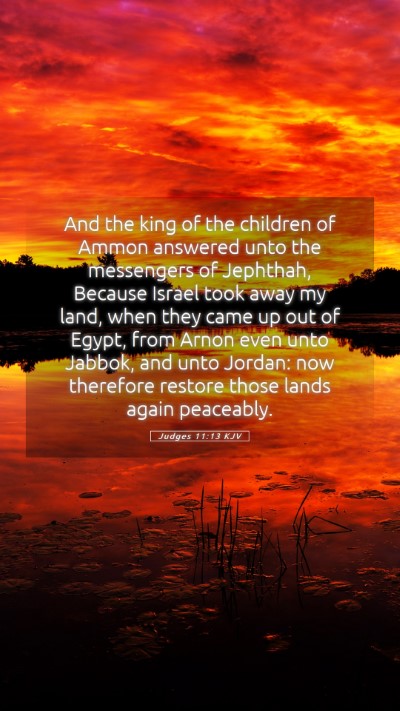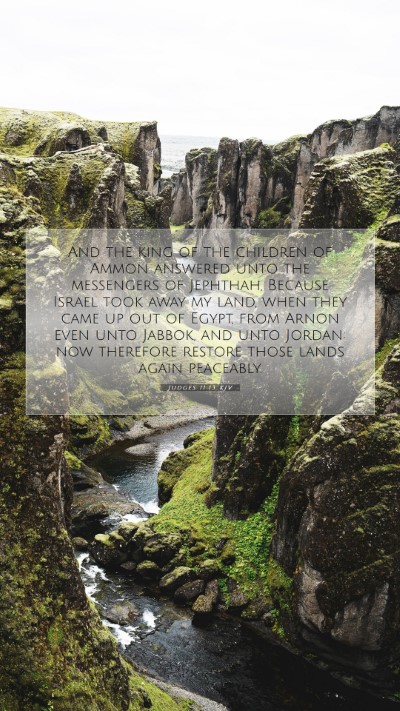Understanding Judges 11:13
Judges 11:13 presents a significant moment in the narrative of Jephthah, revealing profound themes in the context of Israel's history. This comprehensive analysis draws from various public domain commentaries to explore the rich meanings and implications of this verse.
Bible Verse Text
Judges 11:13 (ESV): "The king of the Ammonites answered the messengers of Jephthah, 'Because Israel on coming up from Egypt took away my land, from the Arnon to the Jabbok and to the Jordan; now therefore restore it peaceably.'"
Bible Verse Commentary and Analysis
This verse serves as a response from the Ammonite king to Jephthah's inquiry about the cause of conflict. The Ammonites claim that Israel has wrongfully taken their land during the exodus from Egypt, illustrating a long-standing animosity and territorial disputes that are rooted in Israel's history.
Key Themes and Insights
- Claims of Territory: The king's assertion highlights a recurring theme within the Old Testament regarding claims to land and the consequences of territorial disputes.
- Historical Context: This interaction is steeped in Israel's journey, from Egypt to Canaan, and underscores the lingering effects of those historical events on present relations.
- Covenant and Promise: Jephthah's challenge lies within the broader context of God’s covenant with Israel concerning the land He promised them.
- The Role of Leadership: Jephthah’s position as a leader reflects the complexities leaders face when managing grievances and historical claims.
Insights from Commentaries
Matthew Henry: Henry emphasizes the importance of understanding the territorial claims as part of a larger narrative of divine providence. The land in question symbolizes a fulfillment of God's promise to Israel but also ignites conflict, which is a testament to human nature's tendency to seek power and justification in disputes.
Albert Barnes: Barnes provides a meticulous examination of the geographical terms mentioned in the verse, underscoring how each location plays a role in Israel's historical claim to the land. He notes that this exchange reveals the tension between nations and God's sovereign choices.
Adam Clarke: Clarke discusses the broader implications of this claim, suggesting that it is reflective of Israel’s overall relationship with surrounding nations. He posits that the Ammonite claim is not just a historical grievance but a theological one, questioning God’s favor upon Israel.
Practical Applications
Understanding Judges 11:13 provides several applications for modern readers seeking Bible study insights:
- Interpreting Historical Context: It informs how one approaches difficult Bible passages by understanding the historical and cultural backdrop.
- Conflict Resolution: The verse demonstrates the importance of addressing grievances directly but with a consideration of the past.
- Covenantal Theology: Readers can explore the significance of God’s covenant and how it shapes the narrative of God’s people amidst worldly disputes.
Cross References
- Deuteronomy 2:19: Discusses God's command regarding the land of the Ammonites.
- Numbers 21:24-26: Illustrates Israel’s battles with kingdoms in the area.
- Joshua 12:2: Lists the kings defeated by Israel, offering greater insight into their claims to the land.
- 1 Samuel 12:9-11: Reflects on Israel's history of oppression and deliverance.
- Psalm 135:12: Relates to the giving of land to Israel as part of God's promise.
Conclusion
Judges 11:13 is a vital scripture that underscores the interactions and tensions between Israel and its neighbors. By examining this verse through the lenses of established commentaries, we can gain a deeper understanding of not just the text itself but also its wider implications within scripture. Whether for personal study or in a group context, the insights gained here enhance our comprehension of biblical narratives and their relevance in today’s context.
Further Study Resources
For those interested in exploring further, consider utilizing various Bible study tools and guides that facilitate deeper engagement with scripture:
- Online Bible study platforms
- Bible study courses focused on Old Testament narrative
- Commentaries that expand on historical context and theological implications
Key Takeaway: Engaging with scripture like Judges 11:13 not only enriches personal faith but also equips believers to handle complex theological and historical discussions with grace and insight.


